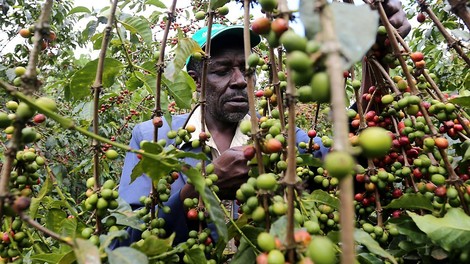Your podcast discovery platform
Curious minds select the most fascinating podcasts from around the world. Discover hand-piqd audio recommendations on your favorite topics.

piqer for: Global finds Deep Dives
Catalina Lobo-Guerrero is a freelance journalist and anthropologist currently living in Barcelona, Spain. For the past decade she has been working as an investigative journalist and correspondent in Bogotá, Colombia and Caracas, Venezuela where has written about politics, corruption, the armed conflict and violence. Her work has been published by The New York Times, The Guardian, El País and other smaller and independent media outlets in Latin America.
Podcast: Is Africa's Big Philanthropy Helping Or Hindering Food Security?
Big philanthropists like the Rockefeller Foundation and the Bill and Melinda Gates Foundation are putting a lot of money into development across Africa. They are behind the "green revolution" promoted by AGRA, a huge alliance that aims to "transform agriculture from a solitary struggle to a business that thrives".
Their funds, and those of other rich Africans, foreign governments and international organisations, have provided more than seven hundred tons of seeds to farmers, and scholarships and other types of training to millions of people in several countries so they can have better results in their crops, be more cost effective, cope more adequately with pests and threats from climate change, and by doing so, help to reduce poverty and raise nutrition levels.
So what's wrong with that? The BBC Documentary talked to some farmers who are not so happy about what they consider "outside pressure", a new form of "colonization" from the type of initiatives that would pressure them to change their centuries old farming methods for genetically modified seeds and chemical pesticides. They believe these would have a negative impact on their "organic" products, people's health and other species—bees and butterflies, for example—hurting the ecosystem's equilibrium and biodiversity. Most African countries, apart from South Africa, have been resistant to GMOs, which some of these big philanthropists support.
It's interesting to listen to the narratives and arguments at both ends. Many farmers, but also other critical philanthropists, are questioning if the big funding partners are really helping to change the status quo and the capitalist system that creates inequality and enhances poverty, or if they are providing new schemes or ways to exploit or profit from small-scale farmers who won't be treated fairly as "partners" in the process of creating a new market and new consumers.
